Leaving Ukraine Made Her Medical Training More Challenging—and More Significant
Student Spotlight
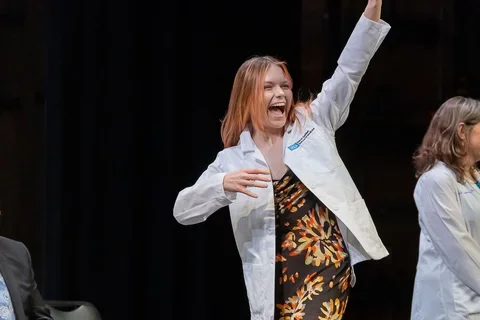
Meet Tereza Vitkovska
Medical student Tereza Vitkovska’s early memories revolve around an idyllic childhood spent in the suburbs of Lviv, Ukraine. She recalls bicycling around a village filled with beautiful historic architecture alongside her younger sister. Sometimes, they would explore the neighborhood on foot so they could bring along one of many cats or their fox terrier, Piff.
Everything changed when Tereza’s parents decided to get a divorce. Tereza and her sister moved out of their childhood home and into a modest apartment with their mother, who struggled to stretch her teacher’s salary far enough to provide her daughters with all they needed and wanted.
Hoping to secure a better-paying job, Tereza’s mother immigrated to the United States. The move promised long-term benefits but came with many short-term challenges.
Tereza and her younger sister had to live on their own for a while. Just sixteen years old at the time, Tereza effectively became her sister’s guardian. She embraced her new responsibilities with grace and understanding.
“I matured quickly to manage our living situation with landlords, budget our allowance for food and utilities, and take care of our two pets,” Tereza recalls.
“Becoming an adult so early brought on many challenges and stress, but I learned to be independent and remain positive in the face of life's struggles.”
About one year later, Tereza took on the additional responsibility of becoming a medical student.
Tereza had dreamed of becoming a doctor as far back as she could remember. She vividly recalls performing mock surgeries on toys and stuffed animals alongside her sister.
During one of her first classes at Lviv National Medical University, she learned the Latin root of the word doctor: Docere, to teach.
“I recognized that a teacher and a doctor have much in common,” she says. “They are compassionate counselors and caregivers who actively listen and inspire individuals to engage in their own learning and well-being.”
Tereza had long been inspired by both her mother, who was a teacher, and her father, who was a doctor. Realizing the two roles they’d modeled to be interconnected and intertwined felt profound and enlightening.
She loved knowing her medical aspirations would honor both her parents.
“The values my parents embodied through their actions provided the foundation for my life's yearning—to serve as an attentive physician and a compassionate educator to those under my care.”
Fun Fact: Tereza has a beloved pet cat she personally rescued from the middle of a road in Tanzania.
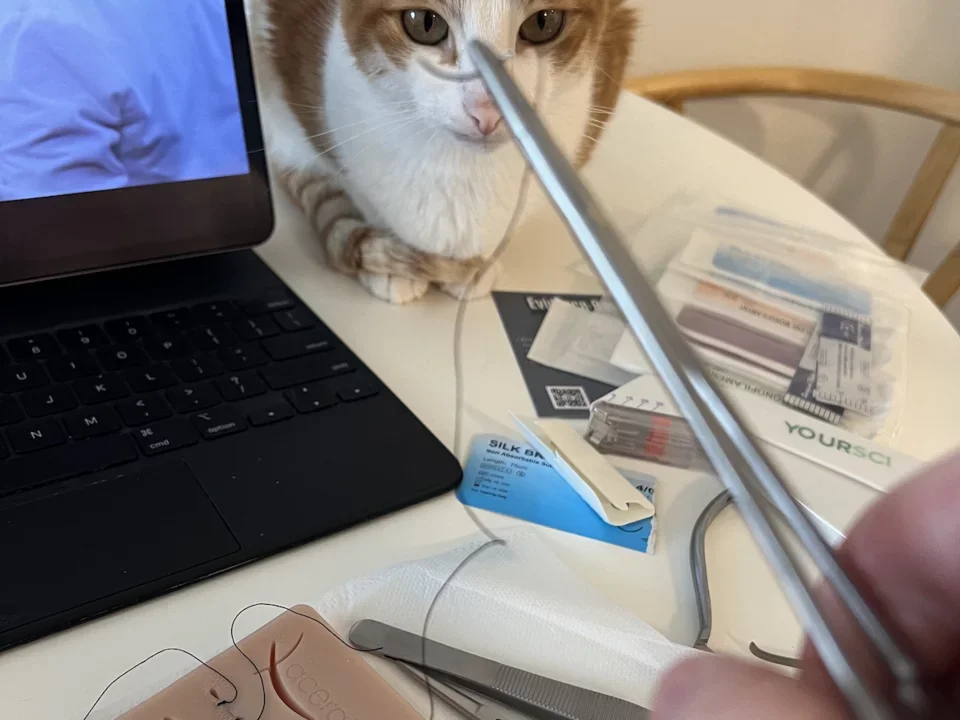
Impending War Forces Difficult Decisions
In 2013, as Tereza was pursuing her medical education, long-building tensions between Ukraine and Russia began to escalate.
She recalls participating in a peaceful student-led protest in support of Ukraine’s government upholding agreements with the European Union that could lead to higher wages, more transparent laws, and healthcare reform.
“After two weeks of protesting, some students went missing and later were found killed,” Tereza recalls. “Those brave young people died protecting democracy and freedom in Ukraine against the exceedingly autocratic pro-Russian government.”
The situation worsened from there. Fearing the worst, Tereza and her sister immigrated to the United States to join their mother in 2015.
Over the next several years, the situation they left behind would develop into Russia’s full-scale military invasion of Ukraine.
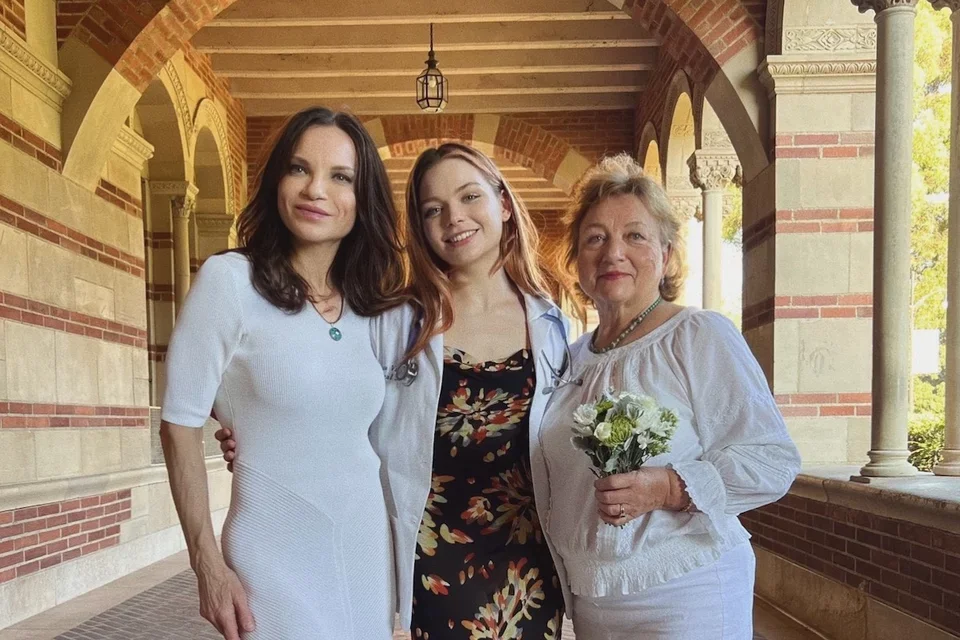
Regaining Confidence as a First-Generation Immigrant
Looking back on her first years in the United States, Tereza recalls feeling safe from the threat of war, but still lost somehow.
“I was a first-generation immigrant student and faced several socioeconomic challenges,” she says. “My English proficiency was low, and I was unfamiliar with the U.S. education system.”
It was a difficult, emotionally trying period. Managing feelings about all she left behind in Ukraine compounded with the challenges of navigating day-to-day life. On top of all that, Tereza yearned to continue her medical training.
While she’d started medical school in Ukraine, moving to the U.S. meant starting over in many ways. Regaining her courage and confidence took time, but she found great comfort and strength in her sister.
“We became each other's best support.”
Balancing work, education, and life in a new country, Tereza eventually earned a bachelor’s degree and then a master’s from Stony Brook University. She stayed post masters to engage in research around lipid metabolism and lipid-modifying enzymes linked to cancer and other conditions.
“During this time, I reconnected with my inner passion for medicine and gained courage to make this choice to become a doctor.”
Life as a Med Student
Nature played a huge role in helping Tereza decide where she’d like to continue her medical education in the U.S.
“I love nature and outdoor activities,” she says. “The nature in California is one of the most beautiful things I’ve ever witnessed. After exploring the state, I felt I would be happy here and would love to call this place home.”
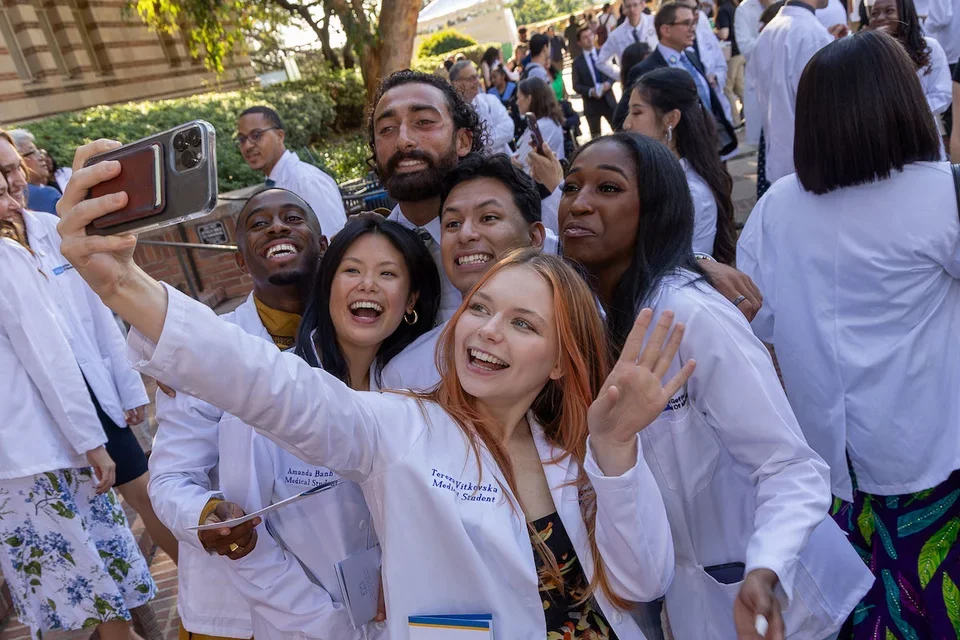
In the David Geffen School of Medicine at UCLA (DGSOM), Tereza found her dream California med school. It felt like the perfect fit. She especially loved UCLA’s emphasis on medical innovation and providing humanistic, patient-centered care.
She’s loved life as a DGSOM med student as much as she imagined she would. She’s a co-coordinator of the Head and Neck Surgery Interest Group (HNSIG) as well as the Ultrasound Interest Group (USIG).
Participating in simulations is one of her favorite parts about being a med student.
“I'm grateful that I’m at an institution with the resources that let me practice procedures and make mistakes in a safe setting.”
A sense of safety is something she feels grateful to have outside school as well.
“I am profoundly grateful for the opportunity to live in safety and stability, which has allowed me to obtain education and pursue my life's mission of becoming a physician.”
Looking Forward to Serving Her Two Communities
When picturing her future career, Tereza envisions being as caring and dedicated a physician as her father.
“Throughout my childhood, he worked tirelessly for his patients and community, always serving as a resource even when he was off duty,” she recalls. “Watching my dad provide relief and comfort to his patients substantially impacted me. It steered me toward a career of service to others.”
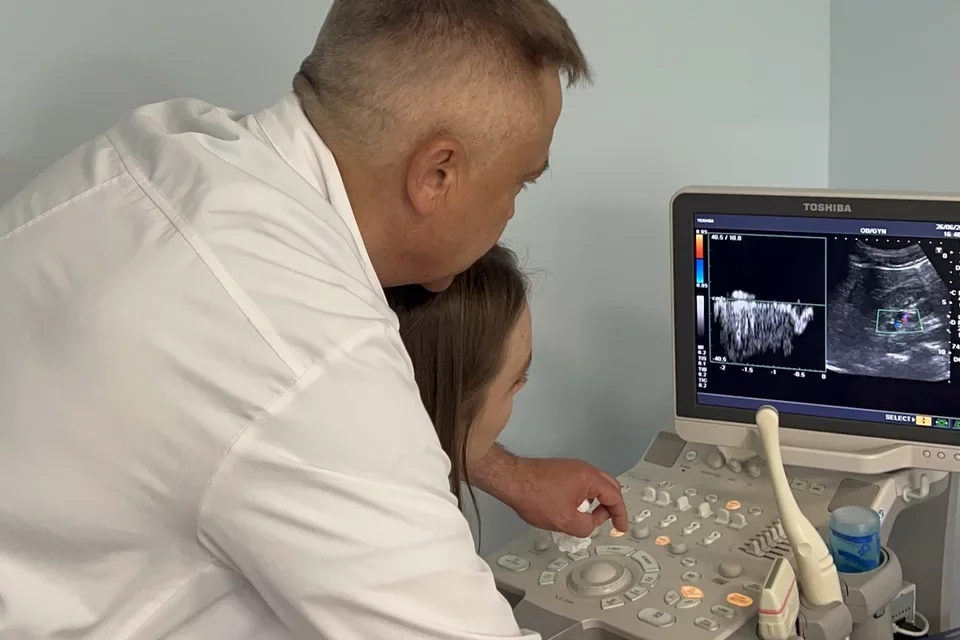
She hasn’t yet committed to a specific specialty, and she wants to get experience in as many different areas as possible before she does.
So far, she’s identified interventional radiology and head and neck surgery as her two biggest loves.
In interventional radiology, she sees opportunities to improve preventative care and diagnostics.
“Interventional radiology is at the forefront of technology,” Tereza says. “I can't wait for more procedures to become minimally invasive. This will make surgery more accessible to many more people.”
Her affinity for head and neck surgery comes from a place close to home.
“So many people need airway, neck, and facial reconstruction in Ukraine,” she says. “Russia has sent missiles to Ukraine every day for almost two years. Children and adults suffer injuries from shrapnel from missile explosions. Such trauma forever alters their life.”
Tereza sees pursuing head and neck surgery as a way to help her people in Ukraine. She imagines herself returning as a physician and volunteering her time and skills to help patients in need.
“I’m eager to continue this journey, give back, and contribute positively to the country that has embraced me,” she says. “In the future, I aim to serve the communities here and in Ukraine—my two homes.”



